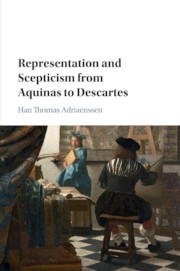PART II - THE VEIL OF CARTESIAN IDEAS
Published online by Cambridge University Press: 13 July 2017
Summary
When Descartes wrote that at the foundation of all knowledge stand clear and distinct ideas, he gave the starting sign for a long and intense debate about representation and scepticism. For inside and outside the Cartesian tradition, philosophers wondered precisely what kind of things these ideas were supposed to be. Sometimes, Descartes simply described them as acts of perception. But at other times, he described them as objects of perception, leading many of his readers to construe the way of ideas as a kind of indirect realism. Accordingly, the question of how we can know a world that we do not directly perceive, soon took centre stage in the reception of Cartesian psychology.
This question occupied critics and admirers of Descartes alike. Among his admirers, Nicolas Malebranche and Antoine Arnauld devoted some twenty years and thousands of pages to debating the virtues and vices of indirect realism. As Malebranche understood it, the way of ideas was a kind of indirect realism, and he put considerable time and effort in showing how ideas can give us knowledge of a world we cannot directly see. Arnauld, however, was sceptical of Malebranche's efforts. They distorted Descartes's original meaning by construing the way of ideas as a branch of indirect realism, and moreover, Arnauld remained unconvinced by Malebranche's attempt at showing that indirect perception can give us knowledge. Ideas give us direct access to things themselves, Arnauld argued, and they do not come in between us and external reality.
Among Descartes's critics, Simon Foucher was one of the most insistent thinkers to question the way of ideas. Ideas veil the world, he argued, and they cannot give us knowledge of material things. An Academic sceptic, Foucher himself welcomed this conclusion. What he criticized the Cartesians for, however, was not so much the sceptical implications of their psychology, but rather a lack of intellectual honesty. What they should have acknowledged but failed to do, he argued, was that there can be no knowledge of a world that we never see but through inner ideas. Although Foucher's arguments met with a detailed defence of Cartesianism by Robert Desgabets, they soon found their way to Descartes's later readers.
- Type
- Chapter
- Information
- Representation and Scepticism from Aquinas to Descartes , pp. 121 - 124Publisher: Cambridge University PressPrint publication year: 2017



